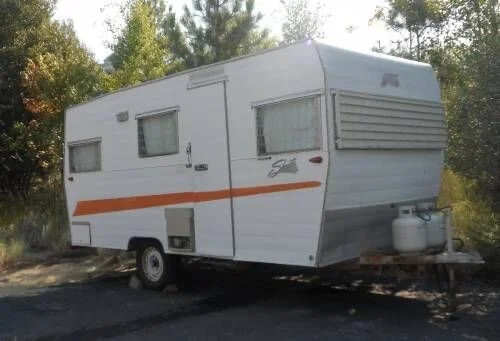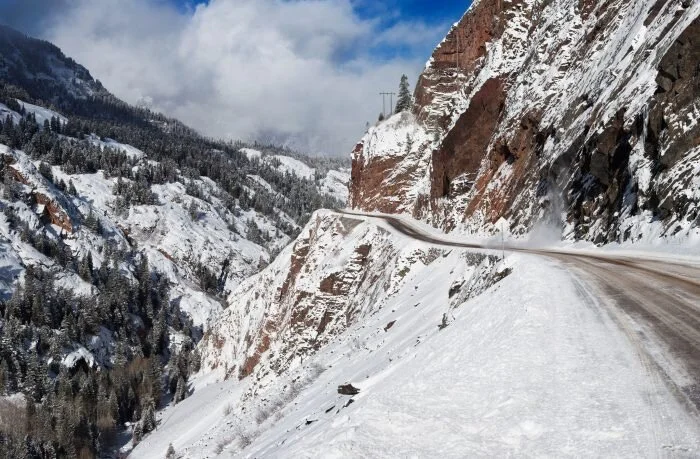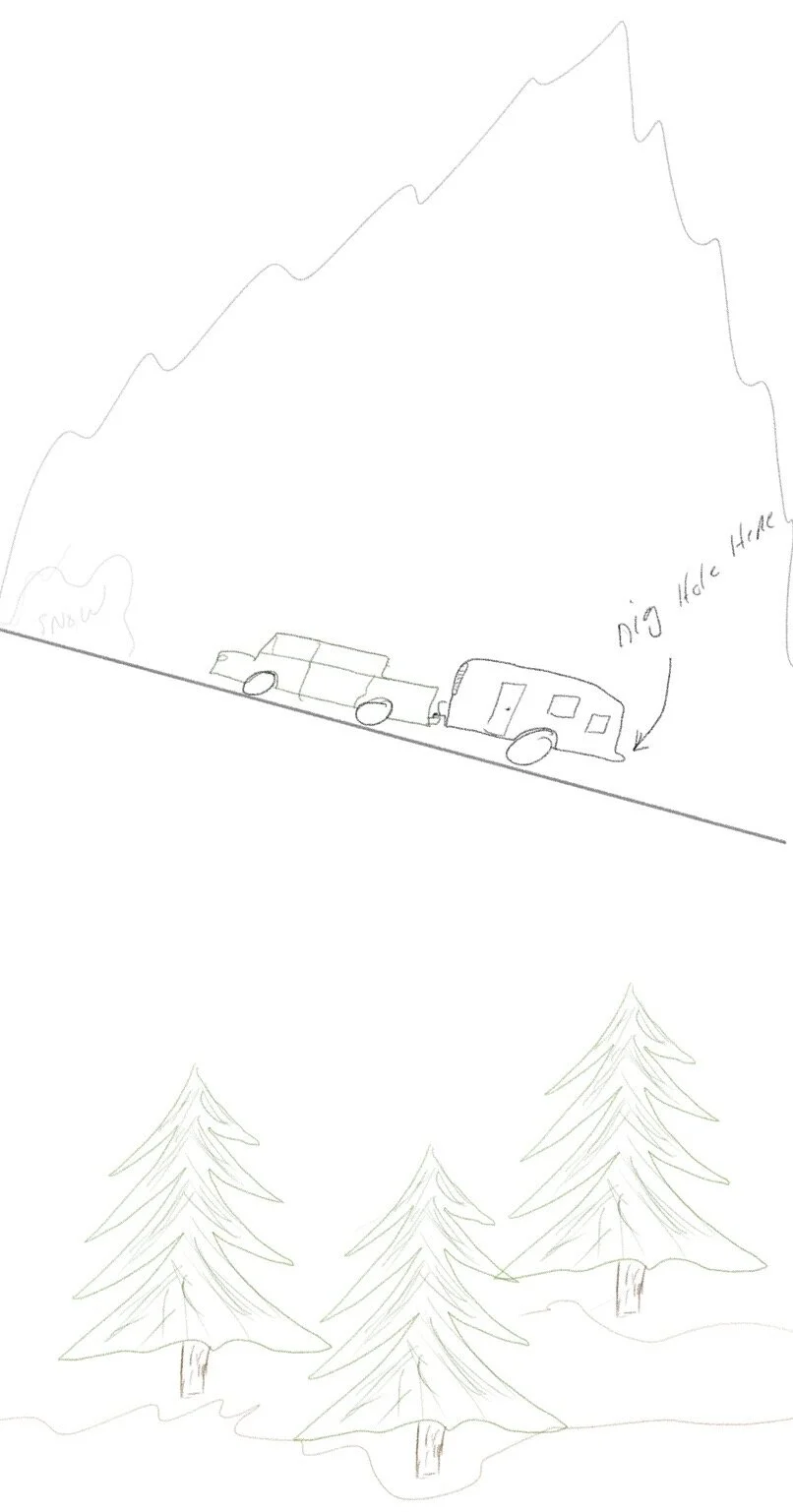Mountain Crisis: Leadership Lessons I Learned from my Father
/At twelve years old I learned an invaluable lesson from my father about leading in a time of crisis. My dad was not an educated man. Though he eventually earned his GED, he dropped out of high school to join the Air Force.
Although my dad was not well educated, he was a leader. His leadership was demonstrated vividly one spring when we found ourselves stranded by an impassable snowbank high atop a steep narrow logging road in the mountains of Idaho.
It was early March when my dad decided to take the family to Yellowstone Nation Park. We packed up the wide-body Pontiac Catalina, hitched the 15’ camper to the back and headed out over the mountains to Yellowstone.
We drove for several hours with the windows down enjoying the magnificent beauty of the mountains and the pine-scented mountain air.
The mountain scenery was beautiful but the road was rough and dangerous.
It was a narrow, winding, dirt logging road running along a steep cliff with no guard rail. In the best spots it was one and half a lanes wide but often only one lane wide. At one point we noticed that there were no cars coming in the opposite direction. We didn’t think much of it until we suddenly found ourselves confronted with an impassable snowbank stretching across the road in front of us. My dad came to an abrupt stop. We sat in silence contemplating our dilemma with a growing realization of our danger.
There was no way through the snowbank. On our left was a steep cliff—we could see the tops of pines far far below. We were facing up the mountain with a trailer hitched to the back of the large car on a road barely one and a half lanes wide. No one was traveling the road. At night the temperature plummets well below freezing in the mountains. And in early spring there was always the possibility of more snow. Backing down a steep narrow, winding logging road with a trailer was not an option. There were no cell phones to call for help in the late 60s.
My dad faced a grave problem. How to get his wife and two small boys safely down the mountain before night fall?
Faced with what appeared to be an impossibly dangerous situation by dad came up with a brilliant and unorthodox idea. We would use a small army shovel to dig a hole in the side of the mountain so that the back right corner of the camper had room to turn through the hole as it was being turned around to face downhill.
After hours of digging a gaping hole in the side of the mountain my dad unhooked the camper, connected a winch (power puller) to the front of the camper, wrapped the cable around a large pine tree down the slope of the cliff, connected the other end around a large stump and proceeded to crank the camper around. It had to be positioned as close to the side of the mountain as possible. As soon as it was facing downhill a rock had to be quickly thrown in front of a tire to keep the camper from careening down the mountain.
That was the easy part.
Now the most dangerous maneuver awaited. You see, the car was facing up the mountain but the camper was now facing down the mountain. Somehow we had to get the wide-body Pontiac turned around and drive it between the camper and the edge of the cliff without going over. The car had to be in front of the camper with both facing downhill.
My dad had the terrifying job of driving the car between the camper and the cliff with only inches to spare. I had the equally terrifying job of guiding him so that he did not run off the cliff.
The memory of this is seared in my memory. I recall vividly as a 12 year old boy nervously guiding my father forward between the cliff and the camper as I watched the left front wheel riding the edge of the cliff. I can still see the small peddles falling away from under the front tire and down the hillside as the car moved forward. One false move and my dad would be killed and it would be “my fault.”
We never made it to Yellowstone but we did make it down the mountain and safely back home.
Leadership Lessons Learned
Leading is a challenge in the best of times. Leading in a time of challenge and crisis can be daunting, even debilitating. But like cream, gifted leaders rise to the top to face the challenges head-on. My dad rose to the challenge and saved his family. He risked his life to do so.
As I reflect on that terrifying incident, several characteristics of leadership standout.
Think Different
In a time of challenge and crisis, leaders must dig holes in the side of the mountain. Normal processes don’t work in abnormal times. Leaders must step back and consider unorthodox ideas. It has been said “never let a good crisis go to waste.” A crisis, a challenging situation, is a rare opportunity to try things that under normal circumstances would be impossible. Think outside the proverbial box and take a risk.
Apple produced a famous ad considered one of the most effective and creative in the industry. It was simply titled Think different. You can watch the ad here.
As you lead your school—think different. Ask yourself and your teams, “what if?” Take a risk. Playing it safe may not take you where you need to go. Playing it safe will not get you down the mountain.
Be Courageous
Fear can paralyze. It can also cause us to make bad decisions.
But fear also gives an adrenaline rush that stimulates to action and creative thinking.
Courage is not the absence of fear, it is the ability to overcome it. The classical definition of courage is the mental or moral strength to venture, persevere, and withstand danger, fear, or difficulty. I would add it is the ability to make an innovative decision and stick with it while facing pushback and criticism.
People do not like you digging a hole in their status quo mountain. If after prayer, consultation and reflection you believe a decision is right, don’t back down. Move forward and start digging. If you have never read Who Moved My Cheese I highly recommend it.
Trust Others
There is a huge trust deficit in our country. The Pew Research Center reports that many Americans see declining levels of trust in the country, whether it is their confidence in the federal government and elected officials or their trust of each other.
The lack of trust paralyzes decision making and progress. It also creates and reflects division and Jesus was clear that “a house divided cannot stand.”
As leaders we have a two-fold challenge. The first is to ensure that our character and our decisions foster trust. A failure in character or repeated bad decisions erode trust.
But, we must also trust others. My dad trusted his 12 year-old son to guide him between the cliff and the camper. Why he did not ask my mother to guide him I l’ll never know but for whatever reason he asked me to be his guide. I’ll never forget his trust in me. It changed my life.
Do you trust your team to make good decisions? If not, determine why. Is the lack of trust due to your compulsive desire to control and micro-manage? If so, you need to change that behavior. If, on the other hand, you don’t trust members of your leadership team to make good decisions then you have other decisions to make.
You need to be trusted and you need to trust if you are going to lead through challenge and crisis.
Prepare for the Unexpected
My dad had no way of anticipating running into a snowbank at the top of the mountain. But, he always seemed prepared for the unexpected. Perhaps it was his military training but whatever the reason, my dad had brought an army shovel and a winch. Without those tools we would not have gotten off of the mountain. He was prepared for the unexpected. He improvised.
While we can never anticipate or prepare for every eventuality (none of us could have anticipated a global pandemic), we can have a mindset of looking around the corner or over the crest of the hill to anticipate the unforeseen consequences of our actions or inaction. We can gather a “toolbox” of contingency plans. For example, have you worked with your board to build up cash reserves to ensure the school’s financial stability during a severe economic downturn? Are you planning now for the long-term impact of shifting demographics underway in our country, e.g., declining birth rates and the decreasing religious commitments of the coming generations? The time to prepare is now, not when you run into the snowbank.
Start digging for the future.






